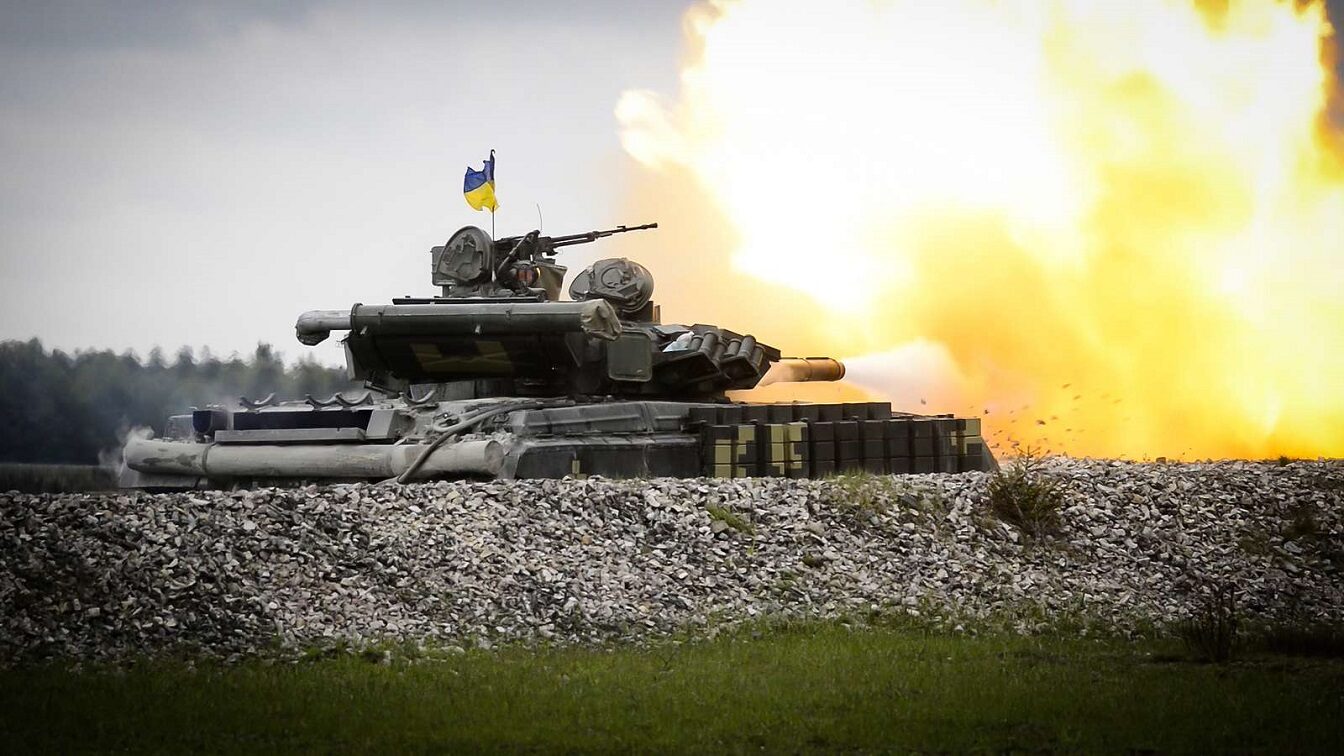Russian President Vladimir Putin has drawn comparisons between his unprovoked war in Ukraine with the act of liberation. On September 30, when announcing the illegal annexation of four areas in occupied Ukraine, he claimed yet again to be freeing people from a purported ‘Nazi regime’ in Kyiv. The sham referendums used to legitimize his imperial outreach are nothing more than democratic tools used by authoritarians like Putin to blackmail, control, and expand influence in the face of a conflict that is not going his way.
Upon closer look, Putin’s rhetoric of exterminating the Ukrainian nation and employing old ‘polling’ methods used by Stalin to expand the Soviet sphere make today’s Russia the antithesis of the rules-based liberal order where respect for territorial integrity, state sovereignty, and internationally recognized boundaries are sacred pillars. Putin’s Russia is still holding onto its fledgling status of a modern-day arsenal of imperialism, making it a dangerous pariah for Europe, transatlantic relations, and, ultimately the United States.
Images from today’s conflict are eerily similar to ones from the old Soviet playbook. Official reasons for invading Poland in 1939 were wrapped in liberation jargon to prevent the USSR – the cradle of international communism – from being labeled an aggressor on the world stage. With state authority deteriorating following the Nazi German invasion of Poland, Stalin saw it as his duty to free and protect brotherly Belarusians and Ukrainians, and their property, from capitalism by restoring order in his neighborhood, giving birth to the modern Russian liberation myth.
Those witnessing the oncoming Red Army in 1939 compared it to an emaciated crowd of ravenous beggars resembling an Asiatic horde. Putin’s army is more a rabble than an elite fighting force. Russian troops looting electronics stores in Ukraine for washing machines and flat-screen TVs is nothing more than when Red Army soldiers pillaged Polish shops for such luxury goods as chocolate in 1939. Regions occupied by Russian troops are being ethnically cleansed, with as many as 1 million Ukrainians sent east. Residents of some occupied regions like Melitopol or the Donbas that took Russian passports are being pressed into military service. After 1939 when the Soviet Union forced everyone to register for internal passports, some 150 thousand Poles, Ukrainians, Belarusians, and Jews were drafted into the Red Army.
After World War II Stalin ingeniously reengineered Western practices of referendums and voting. Held under extreme political duress or at gunpoint with the most favorable outcome known well in advance, they solidified his territorial gains. Between 1945 and 1947 such sham elections in Czechoslovakia, Hungary, and Poland cast Central Europe into Soviet domination for over forty years.
Soviet ‘polling’ occurred at a time when two powers – the USA and USSR – came out of the Second World War the strongest. Then, the showdown for postwar cooperation and competition between West and East was Poland. Putin’s recent sham referendums in Kherson and Zaporizhia come at a time of military weakness and desperation to maintain imperial status. Today, Ukraine is the center of the showdown between democracy and authoritarianism.
Global communism was Stalin’s – and subsequent Soviet leaders’ – chief imperial tool. “Liberating” neighbors in the name of fraternal brotherhood masked true intentions of expanding the political sphere at the expense of eliminating all those deemed dangerous elements.
Putin is guided by similar logic. His aggression against Ukraine is driven by a liberation narrative in the name of Great Russian chauvinism – what he calls ‘de-Nazification.’ The special operation launched on February 24 is another in a long line of Soviet neighborhood ‘peacekeeping’ missions – Poland in 1939, Berlin in 1953, Hungary in 1956, Czechoslovakia in 1968, and Afghanistan in 1979. By forcibly occupying parts of Ukraine, Putin operates by the old adage of taking back that which was torn away from Russia, but in his eyes remains Russian.
The Kremlin views Central and Eastern Europe in particular as a region in constant need of liberation from foreign influence – purported Nazis, NATO, the United States, or Western social and cultural trends in general. Such rhetoric relegates liberation to nothing more than an empty slogan or bitter catchphrase for unprovoked aggression against everything deemed an existential threat, providing Putin with a never-ending appetite for political and territorial expansion. This irrational behavior is dangerous for Russia’s neighbors, Europe, and the world. Putin pursues it because it’s his political life and legacy. Doing otherwise will destroy Russia’s imperial identity and strike a blow to ideas of geopolitically influencing its vast neighborhood.
Vladimir Putin made a strategic mistake in launching a war to liberate Ukraine. Neither were his troops enthusiastically welcomed as Kremlin propaganda claimed they would be nor did he resurrect Russia’s old imperial glory by armed expansion. Ukraine is now the West’s anti-imperial rampart. It’s turning into a political, civilizational, and cultural model for others (e.g. Belarus, Georgia, Moldova) caught in a geopolitical grey zone threatened by Moscow’s territorial revisionism.
Leaning toward the West now more than ever makes it a promising alternative for democratic development in Eastern Europe and Russia itself. Ukraine is protecting the world from threats of a Putin liberation. Only with continued Western solidarity and military support will Kyiv’s victory on the battlefield be the nail in the coffin for Putin’s imperialism.
Pawel Markiewicz is a historian of 20th Century Central and Eastern Europe. He is executive director of the Polish Institute of International Affairs Office in Washington D.C. Follow him on Twitter @DrPMarkiewicz.

